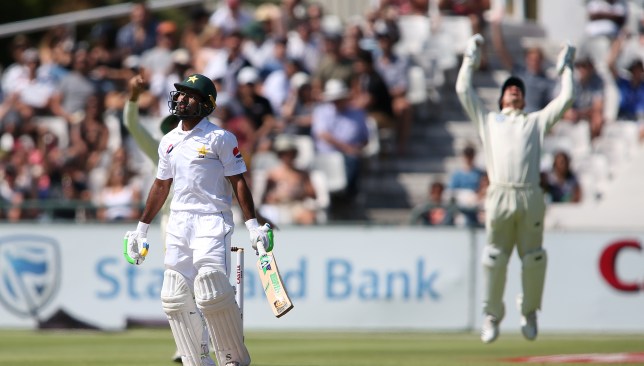
There are a few constants in the universe. We know the Earth takes 365 days, give or take, to revolve around the Sun. We know it rises every morning. And we know Pakistan can’t bat. This isn’t some airy theorem. It has baffled most cricketing scientists: chasing scores, be it large or small, they never fail to fail. QED.
With the Pakistan Super League due to start in a few days, this should give the national team breathing space to uncover more hidden talent, though not necessarily improve their long-term batting woes.
This tale isn’t a new one, it’s been there since the creation of the Pakistan team. You could forgive it with a new-born team, but 70 years on they are still making rudimentary mistakes, some of which I wouldn’t expect my 10 year-old to make. Certainly enough time has passed to iron out any immature indiscretions, or so one would have thought.
The 1970s gave Pakistan the likes of Zaheer Abbas, Majid Khan and the battle-hardened Javed Miandad. The last of these played well into the 1980s and 1990s alongside the likes of Mudassir Nazar, Mohsin Khan and the graceful Salim Malik the 1980s to back him up at the other end. Even Imran Khan, when he couldn’t bowl for an extended period, played as a batsman, and one could pretty much depend on him to hold down an end.
In the 1990s there came the languid Inzamam, though he didn’t need to run much especially with his exquisite stroke play, Ijaz Ahmed – and an older Salim Malik and Saeed Anwar. These were players you could rely on to set large totals or chase them down or die trying, and try they did, most times, though they were not without flaws.
The late 1990’s probably produced some Pakistan’s best batsmen ever, Mohammed Yousuf, Younis Khan and Misbah ul Haq. So what went wrong? Why haven’t the current crop learnt from some of these greats. They have been mentored by some of them, by Miandad, Mohsin and Younis Khan, and two of these have had stints as national coach. Yet has that helped?
From past PSL tournaments, Pakistan have been able to source talent for the shorter formats, but this doesn’t resolve the issue for the longer and most quintessential form of the game. Recently they have been undone by both New Zealand and South Africa, with the batting capitulating in both series, much to the dismay of Mickey Arthur.
If he had any hair left, I’m sure he’d have pulled it out due to sheer frustration. Since the retirements of Misbah and Younis, no one has stepped up. Players such as Asad Shafiq have now been playing Test cricket for seven years, but have still to evolve as batsmen, succumbing to pressure, unable to cope on fast and bouncy wickets. Azhar Ali has a triple ton to his name but is another who is found out quite easily in similar alien conditions.
This in part isn’t the fault of the batsman but of the infrastructure of grassroots cricket in Pakistan itself. The wickets are bone dry and flat, which then exposes technique and temperament when playing in South Africa or Australia. Pakistan certainly have the talent, but what use is that if you can’t utilise those abilities everywhere. No amount of coaching will help, it’s more a case of a psychological front foot block.
There is only so much even Grant Flower can do. They don’t need a coach, but a sports psychologist who can help them fight their inner demons when confronted by alien conditions. Pakistan have yet to win an away series in the two aforementioned countries.
Look at how India have developed as a major force in Test cricket, and have won a series in Australia, albeit against a weaker than normal side (without David Warner and Steve Smith), but the conditions were as alien to them as they were for any other team. They showed the mental resilience to overcome the odds and win a series. This should gee Pakistan up if anything.
If Pakistan are to do well then the new guys at the top, Ehsan Mani and Wasim Khan, have their work cut out for them. They will need to improve everything from grassroots level upwards; change the way wickets are prepared in the country, abolish departmental teams, and bring in regional sides, a template similar to that of the Australian Sheffield Shield competition. That could do wonders, creating more competition for a limited amount of places.
If Pakistan are to change their batting mind-set then the changes will have to be drastic, and start to be implemented as soon as possible given they are currently ranked at No 7 in the Test rankings after being at No 1 as recently as 2016.
They will need to reach the speed of light quickly before the force of gravity really pulls them down.